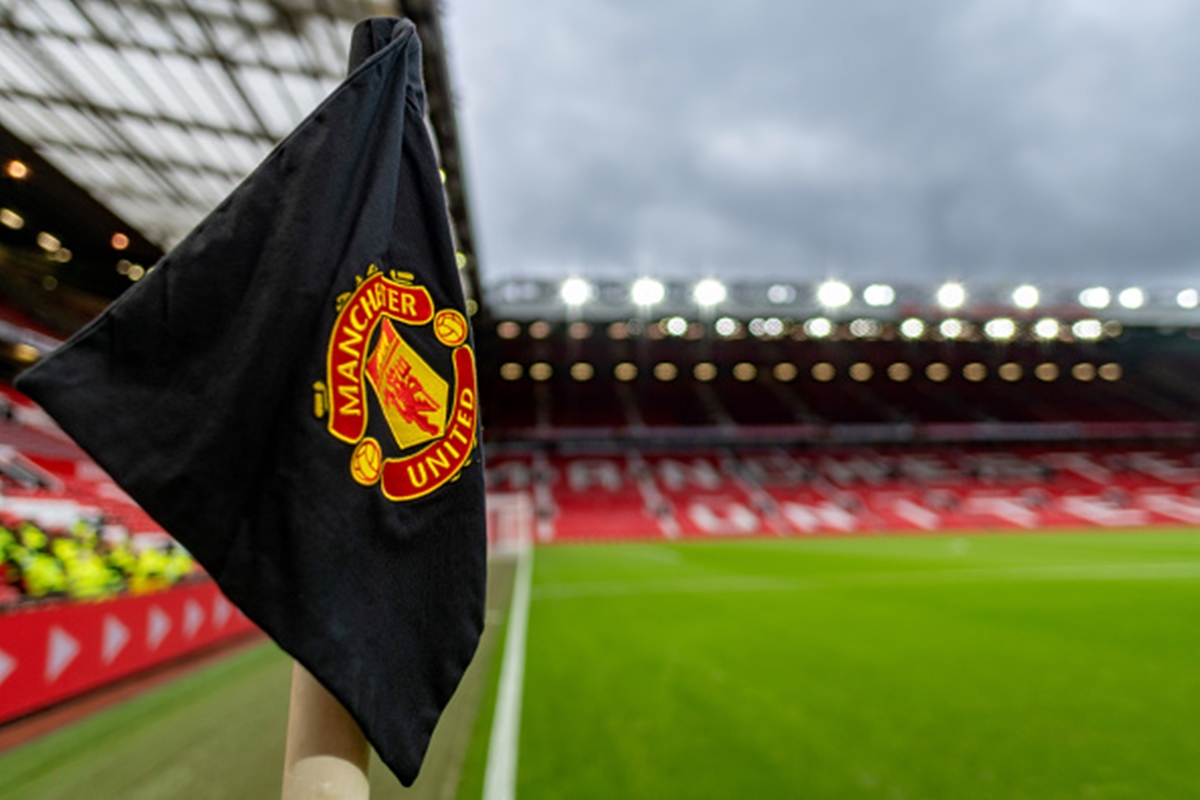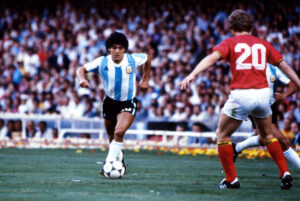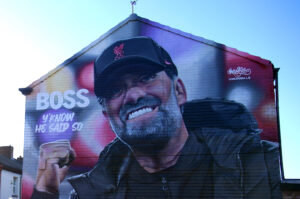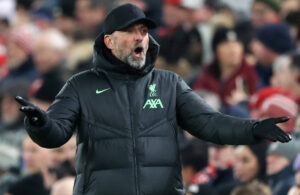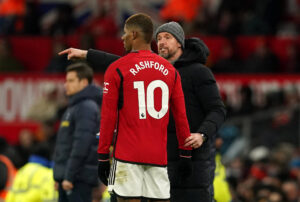It has been reported that on Friday March 24, 2023 a second bid in the region of £4.5 billion was submitted by Sheikh Jassim bin Hamad al-Thani, the chair of the Qatar Islamic Bank, in his efforts to purchase Manchester United. It is also believed that Sir Jim Ratcliffe, chairman and chief executive of the INEOS chemicals group, has done the same.
However, both prospective buyers are faced with the same issue. They both own, or are part of groups that own, other football European football clubs. Sir Jim Ratcliffe owns OGC Nice, who play in Ligue 1. While Sheikh Jassim is part of the Qatar Sovereign Fund, QSI, who own Paris Saint-Germain.
✅ If Ratcliffe buys United and Nice + #MUFC finish in the Champions League qualification spots, the club finishing higher would take the place in the competition, meaning that United would miss out if they finished fourth and Nice finished in Ligue 1's top three. @ESPN 🔴
— UtdPlug (@UtdPlug) March 28, 2023
For this reason, it is rumoured that they may have to sell their stakes in these other clubs if they wish to own the Red Devils in order to comply with UEFA’s rules, specifically Article 5 of UEFA’s club competition regulations which forbids two teams controlled by the same person or group competing in the same competition.
The President of UEFA, Aleksander Ceferin did appear to suggest that UEFA are looking to revise this rule when he spoke with Gary Neville about the issues on Neville’s YouTube channel, ‘The Overlap’.
Ceferin said: “We have to speak about these regulations and see what to do about it. There is more and more interest in this multi-club ownership. We shouldn’t just say no for the investments for multi-club ownership, but we have to see what kind of rules we set in that case, because the rules have to be strict.”
It cannot be known what will happen in the near future with this issue; will the potential buyers simply sell their stakes in the clubs they already own? Or will UEFA change its rules to allow multi-club ownership?
But Manchester United Fans Couldn’t Be Blamed for Looking East, Towards Germany and Austria, and Raising a Few Eyebrows
On the face of it both RB Salzburg and RB Leipzig appear to be owned by the energy drinks company, Red Bull. This would appear to be further evinced by the similarities between their logos, with the Red Bull ‘bull’ appearing in both, and the similarities in their kits. This imagery is spread throughout the Red Bull sports brand including RB New York and the F1 teams making their logo one of the most recognisable in sports.
There have also been a high number of talented players transferring from Salzburg to Leipzig; Naby Keita, Dayot Upamencano, and most recently Dominik Szoboszlai. Even their nicknames are almost identical – Salzburg are known as Die Bullen (The Bulls) while Leipzig are known as Die Roten Bullen (The Red Bulls). All of this creates the image that Salzburg and Leipzig are part of a wider, conscious sporting project operated by Red Bull.
However, in 2017, when Leipzig first qualified for the UEFA Champions League and questions were raised over the legitimacy of both clubs competing in the same European competition, UEFA ultimately decided that ‘no individual or legal entity had a decisive influence over more than one club’. How is this possible?
RB Salzburg
Red Bull purchased SV Austria Salzburg in 2005 and attempted create a ‘brand new’ club named FC Red Bull Salzburg. To achieve this they tried to eliminate the previous club from history with the club website initially stating that ‘this is a new club with no history’ – although the Austrian FA made them remove this and acknowledge the history of the club. They also completely removed all logos and symbols associated with SV Austria Salzburg to be replaced by the iconic bulls, as well as changing the team’s colour from the traditional violet to red.
In a move that was perhaps a precursor to what would later occur at Leipzig, Red Bull also changed the bylaws of Salzburg to ensure that Red Bull could control and direct the club as they chose with no outside influence.
At this point there was no question that Red Bull owned Die Bullen.
RB Leipzig
First of all, it may surprise you to hear but despite the obvious branding and ties to Red Bull the ‘RB’ actually stands for RasenBallsport – according to Google translate ‘rasen’ means lawn. Despite this wordplay, Die Roten Bullen are owned by Red Bull. The company bought, the then fifth-tier, SSV Markranstadt in 2010 and immediately re-branded the club with the now familiar dual charging bulls.
Read More: ‘Very Positive’: Manchester United In Talks to Sign ‘Special’ Defender – Ten Hag Loves Him
To do this they had to find a way around Germany’s 50+1 rule in which fans need to own 51% of the shares in the club. To do this the energy drink giants had 17 employees form the 51% membership stake necessary and then essentially closed the doors to anymore fans owning shares in the club. They’ve achieved this by exercising their right to arbitrarily dismiss any applications from aspirational fans who apply for shares in the club.
There can be little question that Red Bull, by owning the entirety of the club through company shares and employee/fan shares in a manner unique within German football, own RB Leipzig.
So How Did Uefa Come to the Conclusion That Both Teams Were Separate Enough From Each Other and Red Bull for Both to Compete in the Champions League?
Really do feel the precedent that Leipzig/Salzburg set when UEFA agreed their ownership structure meant it didn't break their rules is driving Qatari confidence they can own PSG via QSI and own United, maybe indirectly, via QIA/private investors…and not break any rules. pic.twitter.com/HEfxxSjdaj
— United Peoples TV (@UnitedPeoplesTV) February 13, 2023
It’s difficult to answer specifically due to the fact that UEFA’s investigation happened ‘behind closed doors’, as well as it being likely that the investigators were given access to paperwork and documents that haven’t, and will probably never, be made public. But it is notable that a number of changes were made at board level to both Leipzig and Salzburg at this time. Essentially, individuals who had been operating across both boards appeared to now only be staff members at one club or the other.
This seemed to demonstrate, at least to UEFA’s satisfaction, that there was no longer any parties at either club to oversee a bilateral project between the pair. Each club had its own board and would be striving towards achieving its own goals. This also suggests that there is no individual in Red Bull’s head office that both directors are answerable to and who can provide an ongoing link between the two – at least on paper.
It also seemed to suggest that UEFA have no issue with both clubs receiving funding from the same origin – Red Bull GmbH.
It is difficult to believe that RB Salzburg and RB Leipzig operate independently of each other, however, what this example has demonstrated, is that the prospective buyers of Manchester United probably do not need to shed their other footballing interests in order to own the Red Devils.
They simply need to show that – on paper – the board members and decision makers at each club are separate and distinct.
This will surely be easier for Sheikh Jassim and the QSI to achieve as they can simply copy exactly what Red Bull have done at their two clubs. For Sir Jim Ratcliffe it may prove slightly harder. This is because he is the founder, owner and face of his company. But, as a boy hood Manchester United fan, it seems plausable that he would be willing to lower his ownership shares in OGC Nice or find a way to remove himself, if not his money, from that operation entirely to achieve his goal to ‘put the Manchester back in Manchester United.’


